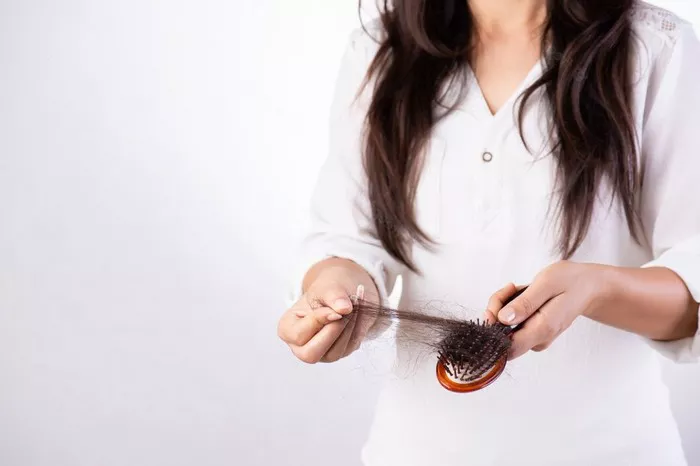Hair fall is a common problem that affects millions of people worldwide. While losing 50–100 hairs a day is normal, excessive shedding can lead to thinning hair, bald patches, and reduced confidence. The causes of hair fall are varied, including genetics, poor diet, stress, hormonal changes, and improper hair care.
However, with the right strategies, you can reduce hair fall and promote healthy hair growth. This essay will explore practical, science-backed methods to prevent hair loss, using simple language and logical steps.
Understanding the Causes of Hair Fall
Before learning how to stop hair fall, it’s important to know why it happens. Hair grows in cycles: growth (anagen), transition (catagen), and resting (telogen). Shedding occurs when hairs in the telogen phase fall out. Problems arise when this cycle is disrupted.
Common causes include:
- Genetics: Hereditary hair loss (androgenetic alopecia) is the most common cause.
- Hormonal Imbalances: Thyroid issues, pregnancy, or menopause can trigger hair fall.
- Nutritional Deficiencies: Lack of protein, iron, zinc, or vitamins weakens hair.
- Stress: Physical or emotional stress pushes hair into the shedding phase.
- Hair Care Habits: Over-styling, heat tools, or harsh chemicals damage hair.
- Medical Conditions: Scalp infections, autoimmune diseases, or medications (e.g., chemotherapy).
By identifying the root cause, you can tailor solutions to your specific needs.
Nutrition: Feed Your Hair from Within
Your hair is made of protein (keratin), so a balanced diet is crucial. Here’s what to focus on:
Protein-Rich Foods
Hair follicles rely on protein to grow. Include eggs, fish, chicken, lentils, and Greek yogurt in meals. Vegetarians can opt for quinoa, tofu, or nuts.
Iron and Zinc
Iron carries oxygen to hair roots, while zinc repairs tissues. Eat spinach, red meat, pumpkin seeds, and chickpeas. Low iron levels (anemia) often cause hair thinning.
Vitamins
- Vitamin A: Supports scalp oil (sebum) production. Try sweet potatoes, carrots, or kale.
- B Vitamins (Biotin, B12): Strengthen hair structure. Found in eggs, avocados, and almonds.
- Vitamin D: Low levels are linked to hair loss. Get sunlight or eat fatty fish.
- Vitamin E: Improves scalp circulation. Use sunflower seeds or spinach.
Omega-3 Fatty Acids
These fats reduce scalp inflammation. Add salmon, walnuts, or flaxseeds to your diet.
Stay Hydrated
Dehydration makes hair brittle. Drink 8–10 glasses of water daily.
Avoid Crash Diets: Extreme calorie restriction starves hair follicles, leading to shedding.
Proper Hair Care Habits
Gentle handling prevents breakage and split ends.
Washing
- Use lukewarm water (hot water dries the scalp).
- Choose a sulfate-free shampoo to avoid stripping natural oils.
- Massage the scalp gently to boost blood flow.
Conditioning
Apply conditioner from mid-length to ends, avoiding the scalp. Rinse thoroughly.
Drying
- Pat hair dry with a microfiber towel—no rubbing.
- Limit heat tools (blow dryers, straighteners). If needed, use a heat-protectant spray.
Brushing
- Use a wide-tooth comb on wet hair to prevent tugging.
- Avoid brushing too often; it can cause mechanical damage.
Hairstyles
Tight ponytails or braids pull on roots, leading to traction alopecia. Opt for loose styles.
Avoid Damaging Practices
Chemical Treatments
Frequent coloring, perming, or relaxing weakens hair. Space out treatments and use deep conditioners.
Heat Styling
High heat breaks protein bonds. Air-dry hair when possible.
Rough Towels or Pillowcases
Cotton fabrics create friction. Switch to silk or satin pillowcases.
Manage Stress and Improve Sleep
Stress raises cortisol levels, which disrupts the hair cycle.
Relaxation Techniques
- Practice yoga, meditation, or deep breathing.
- Spend time outdoors or engage in hobbies.
Sleep Quality
Aim for 7–8 hours nightly. Sleep repairs cells, including hair follicles.
Medical Treatments and Supplements
Topical Solutions
- Minoxidil: Over-the-counter foam that stimulates growth.
- Prescription Drugs: Finasteride (for men) blocks DHT, a hormone linked to balding.
Supplements
Biotin, collagen, or multivitamins can help if you have deficiencies. Consult a doctor first.
Professional Treatments
- PRP Therapy: Injections of platelet-rich plasma revive follicles.
- Laser Therapy: Low-level lasers boost blood flow to the scalp.
Natural Remedies
Oils
- Coconut oil penetrates hair shafts to prevent protein loss.
- Rosemary oil improves circulation (mix with a carrier oil).
Aloe Vera
Soothes the scalp and reduces dandruff. Apply fresh gel weekly.
Green Tea Rinse
Antioxidants in green tea strengthen hair. Cool brewed tea and apply after shampooing.
Lifestyle Changes
Quit Smoking
Smoking reduces blood flow to hair follicles.
Exercise Regularly
Physical activity improves circulation and reduces stress.
When to See a Doctor
If hair fall persists despite home care, consult a dermatologist. They can check for thyroid issues, hormonal imbalances, or scalp conditions.
Conclusion
Preventing hair fall requires a holistic approach: nourish your body, handle hair gently, reduce stress, and seek professional help when needed. Consistency is key—healthy hair grows slowly, but with patience, you’ll see results.
Start with small changes, like improving your diet or switching to a silk pillowcase, and build from there. Remember, your hair reflects your overall health, so take care of yourself inside and out.
Related topics:
Preventing Hair Loss and Maintaining Healthy Hair: The Ultimate Guide
How to Transform Thin Hair into Thick, Luscious Locks
How to Stimulate Your Scalp for Optimal Hair Growth


